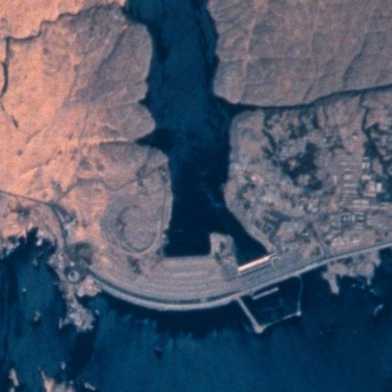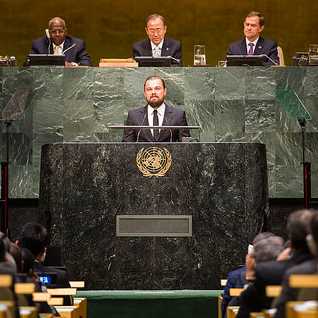ETH News
All stories by Prof. Thomas Bernauer
Why we need to know more about individual carbon footprints
- News
- Zukunftsblog

As Thomas Bernauer sees it, information on the impact that different segments of the population have on the climate is an essential ingredient in making climate policy measures fair and acceptable to the majority.
On environmental issues, the city-country divide is smaller than often assumed
- News
- Zukunftsblog

We like to perpetuate the idea of a divide in the attitudes of city dwellers and country people as part of debates on the environment, but it’s simply not the reality, explains Thomas Bernauer. In fact, there is little evidence of a fundamental urban-rural disconnect in Swiss environmental policy.
How we can adapt to climate change
Zukunftsblog

Thomas Bernauer contributed to the latest IPCC report on adaptation to climate change. He sees nature and good governance as our most important resources for coping with the effects of climate change.
How important is reciprocity for climate policy?
Zukunftsblog

The Paris Agreement relies on voluntary and therefore weak commitments. But contrary to popular belief, if some countries “free-ride”, this does not undermine the commitment of others, writes Thomas Bernauer.
The water war myth
Zukunftsblog

Humans need water. If it is in short supply, conflicts can arise. Contrary to popular belief, however, these almost never lead to war, but rather to cooperation, writes Thomas Bernauer.
Globale Klimapolitik – Taktgeber oder Begleitmusik?
Zukunftsblog

Die Conference of the Parties (COP) funktioniert als Forum zur politischen Meinungsbildung zwar gut, als Plattform zur Aushandlung konkreter Massnahmen gegen den Klimawandel hingegen schlecht. Wenn nun auch der energietechnische Wandel in den Vorreiterstaaten schwächelt, drohen der globalen Klimapolitik magere Zeiten.
What type of climate funding for developing countries do we support?
Zukunftsblog

It is often stressed that developing countries need large financial support in order to cut greenhouse-gas emissions and to reduce climate-change related risks. But will people in rich countries be willing to provide the necessary amounts of money in times when budgets are tight? And are there characteristics that influence public support?
Nord-Süd-Finanzierungsmechanismen in der globalen Klimapolitik
Zukunftsblog

Wie beim Schutz der stratosphärischen Ozonschicht, bei dem globale Bemühungen seit den 1980er Jahren sehr erfolgreich sind, ist auch das Klimaproblem durch einen starken Nord-Süd-Gegensatz geprägt. Transferzahlungen sind das übliche Politikinstrument, um solche Differenzen abzubauen.